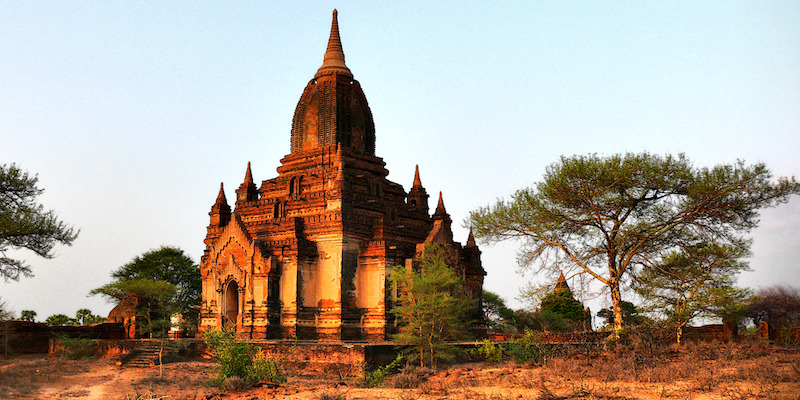
Raising Awareness of the Rohingya
A Sampling of Food from Myanmar
The Outreach and Social Justice Committee invites you to a sampling of food from Myanmar.
We’re hoping to raise awareness of the plight of the Rohingya people, who are refugees from Myanmar (formerly Burma).
Sunday, January 21st
11:45am in Simpson Hall
Please consider contributing to our designated offering this month, which will go to Doctors Without Borders (Médecins Sans Frontières): a reliable organization with both access and expertise to serve these suffering people.
Make your check out to Church of the Good Samaritan with “designated offering” on the memo line. Donations can be made either at the January 21st lunchtime event or in the designated offering envelope found in the pews.
More about our work in Outreach and Social Justice »
Who are the Rohingya?
The Rohingya are an ethnic Muslim minority who practice a variation of Sunni Islam. They account for about 4 percent of the population of Myanmar, which is predominantly Buddhist. For decades, the Rohingya have suffered the denial of citizenship and basic human rights, persecution, and ongoing violence from the military ruling Myanmar and from anti-Muslim Buddhist nationalists.
On August 25, 2017, a group of Rohingya insurgents responded by attacking some of the Myanmar security forces. The military struck back, demanding that all Rohingya leave Myanmar. They burned down Rohingya dwellings and entire villages; they also perfomed extrajudicial and summary executions of men, women and children; rape and sexual violence; torture; and attacks on places of worship.
United Nations officials have described these systematic attacks as ethnic cleansing, potentially acts of genocide and crimes against humanity.
The result was a mass exodus of 645,000 Rohingya (more than half the Rohingya in Myanmar) to Bangladesh. But Bangladesh doesn’t have the resources to support such an influx of refugees, who arrive having suffered physical trauma, sexual assault, and extreme emotional distress associated with the brutal murder of family members and the burning of homes and villages. Outbreaks of measles and diptheria threaten their camps, and malnutrition is common.
The international community has been slow to respond. Muslim relief organizations have been denied access to Rohingya refugees in Bangladesh out of fear that these organizations would promote terrorism. China doesn’t want to undermine its strategic support of Myanmar’s military by aiding the Rohingya. Europe is already overwhelmed by refugees from Syria, Iraq, and numerous countries in Africa. The United States has grown more isolationist.
The Rohingya need our help. The organization best-positioned to deliver it is Médecins Sans Frontières (MSF) International, also known as Doctors Without Borders, which provides medical services, water, and sanitation to Rohingya people who have fled Myanmar. MSF has a long history of working with Rohyingya refugees in Bangladesh; currently they deploy 2,000 staff members and run three inpatient facilities, three primary healthcare centers, 15 heath posts, and two mobile clinics.
